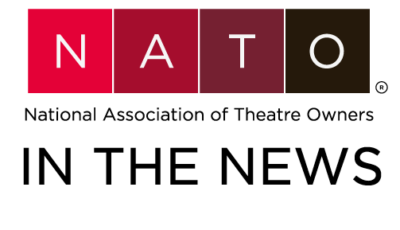The Prelude to the Policy Statement:
It started last October when a group of women went public with their stories of sexual assault and harassment at the hands of a very powerful movie mogul. The group of women joining the outcry against that one man has grown to more than 70. Investigations and likely prosecutions are pending in Los Angeles, New York, and London. Since October, other movie and television executives, directors, and actors have been implicated in a wide range of illegal, illicit, and inappropriate sexual behavior.
Indeed, no sector of American business and culture can claim to be free of misconduct of a sexual nature. As the public outcry grew over the past five months, more and more women felt enabled to tell their stories about men in powerful positions and the abuse they levied. The movement has called out television personalities, comedians, corporate executives, politicians, religious figures, sports doctors, and more.
Picking up on a technique used previously by social activist Tarana Burke, actress Alyssa Milano used the hashtag #MeToo to encourage other women to speak out and demonstrate the breadth of the problem of sexual assault and harassment. Since then, the phrase has been tweeted and posted millions of times, as more and more women (and some men, though at much smaller numbers) have spoken up.
Although harassment has been happening in silence for years, settlements and secrecy are no longer acceptable. The dialogue that began in October was far from the first time that women have gone public with sexual harassment or assault allegations against a powerful man. However, this was the first time that there were real, public consequences. The nation, and indeed the world, has now been confronted with an ugly reality that demands action in response. Every person and every entity should ask what they can do to make things better.
The first baby step has been taken as a result of the sheer volume and intensity of the victims’ stories—simple awareness. Although many women have been sharing these stories privately for years, this mass disclosure has revealed the true extent of the issue. Positive actions cannot be developed without a better understanding of the scope and nature of the problem to be addressed. And unfortunately, this problem is ubiquitous and universal. In a 2017 poll by the Washington Post and ABC News, 54 percent of women in the United States reported receiving unwanted and inappropriate sexual advances.
Another important step depends on our governments. Elected and appointed officials should respond to their constituents by improving laws and policies. For instance, the U.S. Equal Employment Opportunity Commission should release its final sexual harassment enforcement guidance, which is currently stalled at the Office of Management and Budget. A draft of this proposed update was released in January 2017. Final guidelines could not be more timely and more necessary than right now. Employers and employees alike would benefit from modern, useful guidance. In addition, some state and local governments are challenging the use of nondisclosure agreements in settlements with harassers, which silence victims and allow harassers to continue their inappropriate and dangerous behavior.
Our government can also lead by example. The existing harassment complaint system in the U.S. Congress, for example, is overly complicated with confidentiality provisions and built-in waiting periods. Legislation is now pending to hold our elected officials to a higher standard.
But industry and institutional leaders must also act. All employers have a legal and often contractual obligation to maintain a workplace free from sexual harassment. Many employers have responded to the awareness of the current times to revise and improve their policies and practices and to conduct vitally important training involving all their employees. And in some cases, representatives of the employees will be watching. The entertainment industry’s actors’ guild, SAG-AFTRA, recently issued a new code of conduct to better define what harassment is, and what employees’ rights are.
This movement is about more than just harassment. If women are to have true equality in the workplace, it is up to employers to create a culture that supports female employees. Women need to feel empowered to speak out about workplace harassment, and that requires confidence that their employers will listen and that consequences will be more than symbolic.
Here at NATO and CinemaCon, we also want to take action. At NATO, we have long espoused the importance of diversity both on screen and off as not only the right thing to do—but as good business. If we wish to promote a diverse environment, we must support that belief with actions. We believe that policies against sexual intimidation and harassment should not just apply to staff and organizers of events, but should be extended to all attendees. So NATO and CinemaCon have adopted a new Code of Conduct that will apply to all of our events—including conventions, board and annual meetings, and educational summits. The first event subject to this policy will be CinemaCon 2018, to be held in Las Vegas from April 23 to 26. We also followed the lead of Sundance Film Festival’s new code of conduct and decided to establish a call hotline for use by anyone at CinemaCon who feels subject to intimidation or harassment.
Please review the full Code of Conduct set forth in the box adjacent to this column. NATO and CinemaCon will publicize this policy to all delegates and attendees, and it will be strictly enforced.